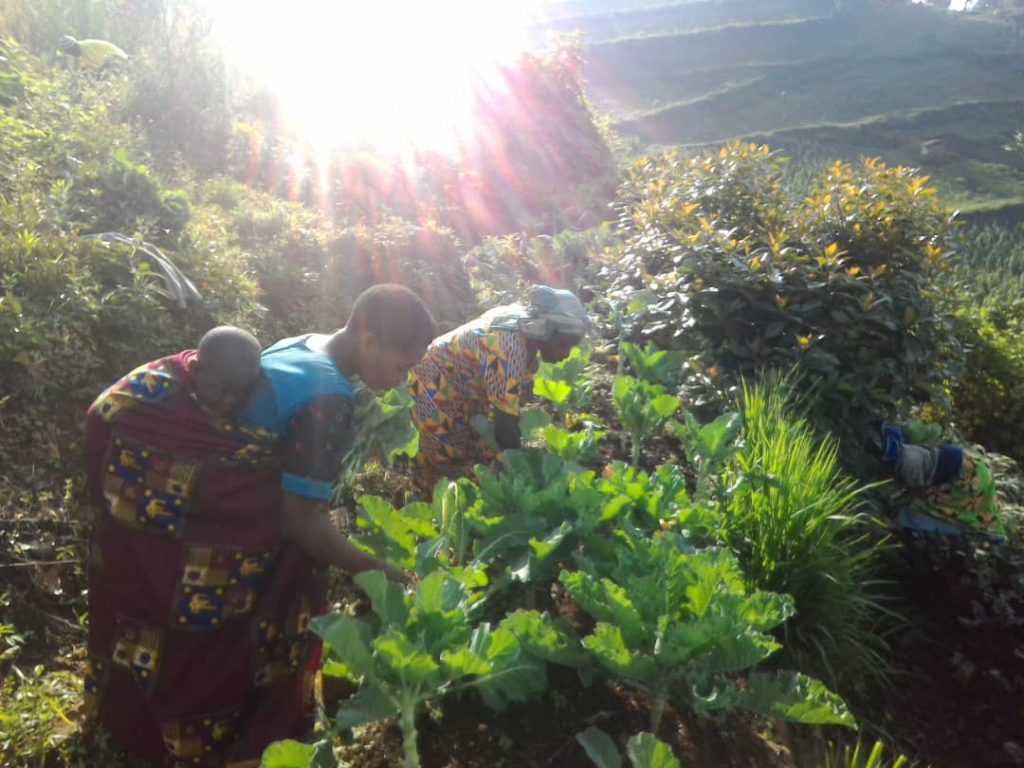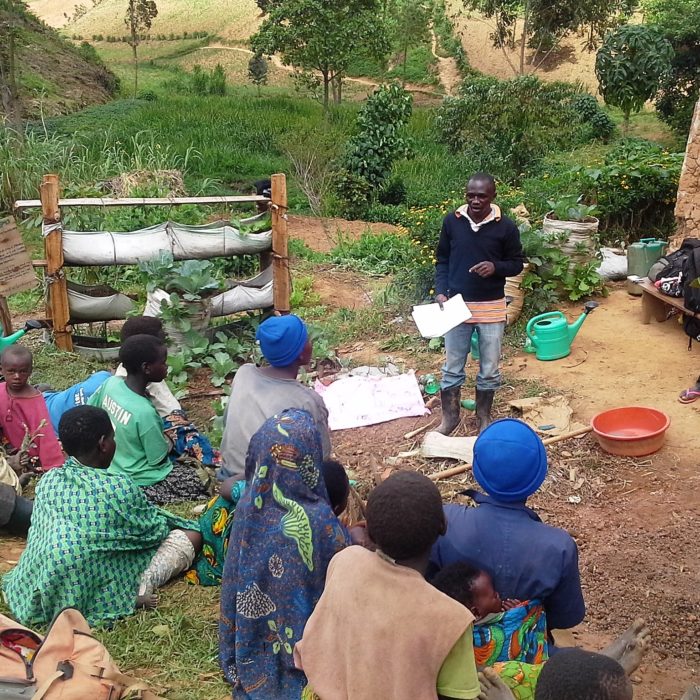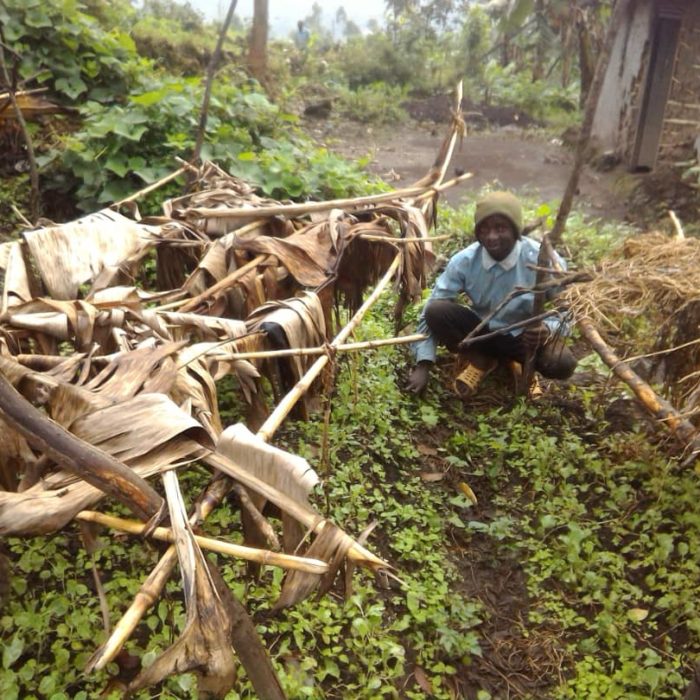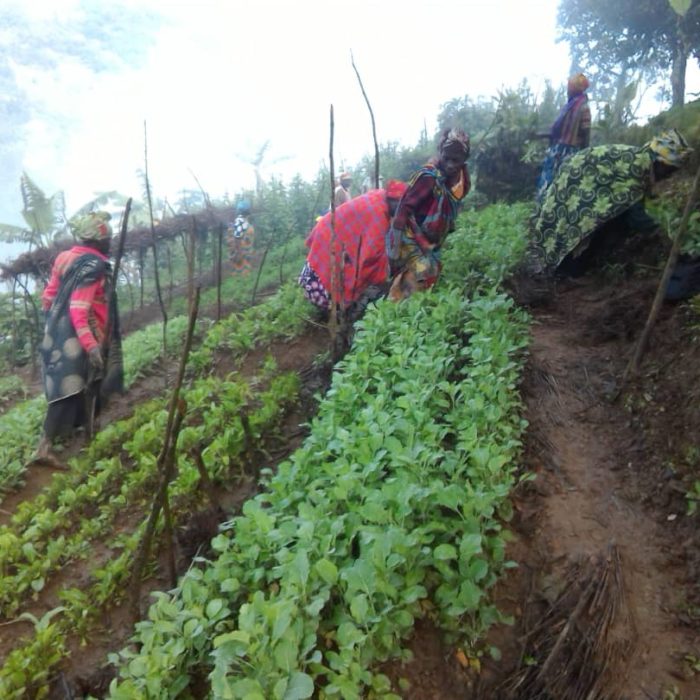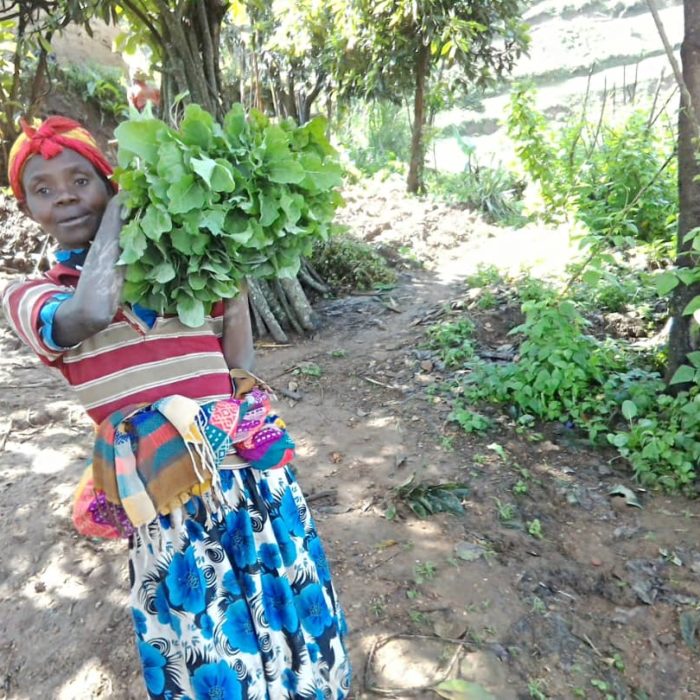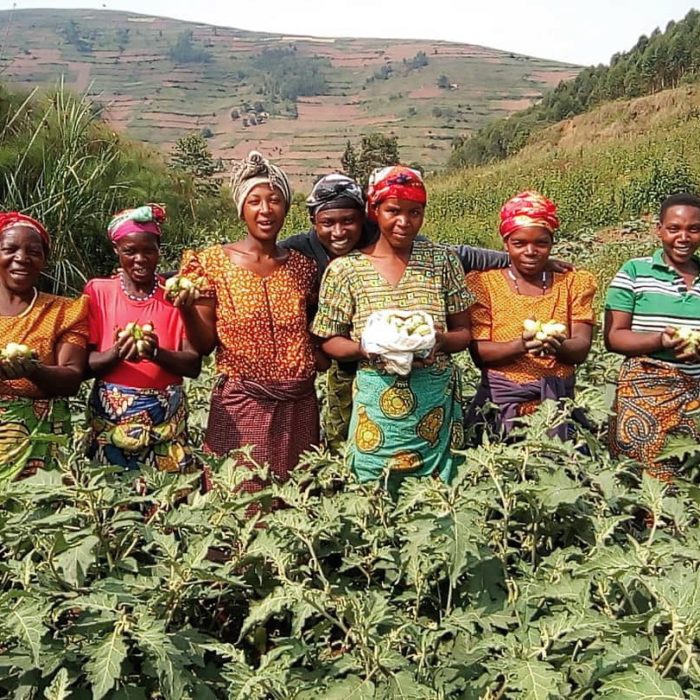Building trust, confidence, and hope is key to our program’s success; and no where is that more important than with the culturally displaced Batwa of southwest Uganda.
DIG has made a long-term commitment to this uniquely marginalized community. The Batwa have experienced terrible poverty and poor health since their eviction from their ancestral lands in the early 1990s. (Read more about DIG’s work with the Batwa here.)
After four years of engagement, DIG is celebrating having reached half the Batwa population of Uganda. Almost 3000 people are now using our regenerative agriculture model to solve their food security needs.
Mory, a Batwa mother of seven, is one of DIG’s 2020 program graduates. Before DIG, she worked as a day laborer. “It was very hard work and I was often paid in potatoes,” says Mory. For other produce she would have to beg.
For the first time ever, Mory is growing her own vegetable garden. She’s eating and sometimes selling diverse produce such as beets, swiss chard, onions and other crops. Mory’s land is very small, so much of her garden is contained in old rice sacks positioned around her home. “I never considered farming,” says Mory. “I was surprised to see how much I could grow on the little land I have.”
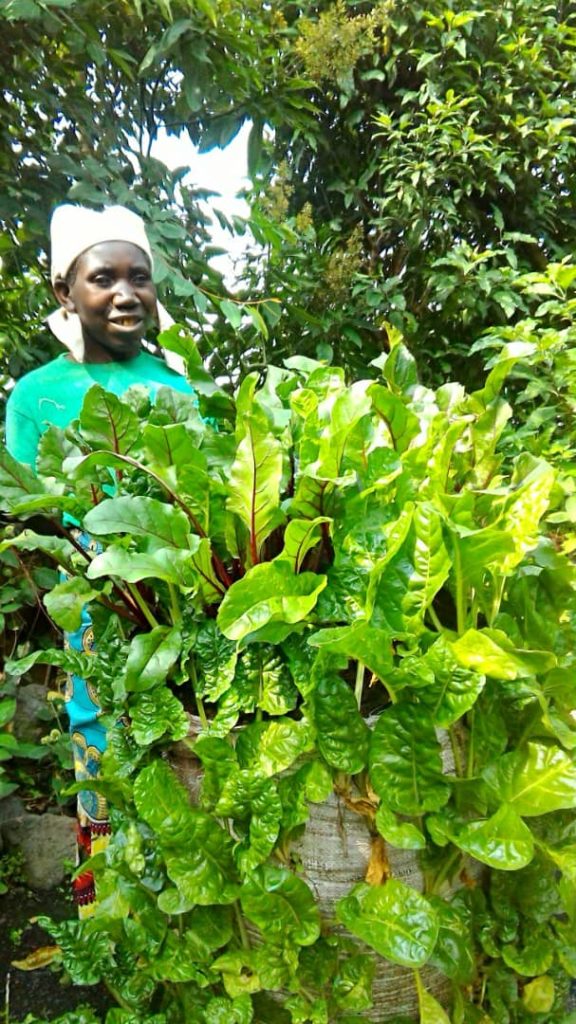
Mory’s. Sack Garden 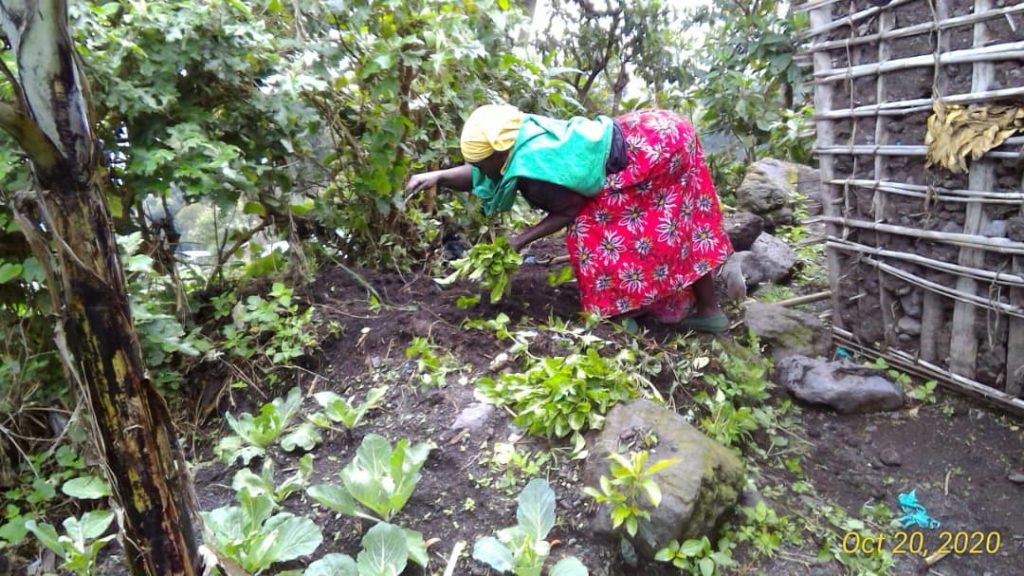
Mory preparing land around her home 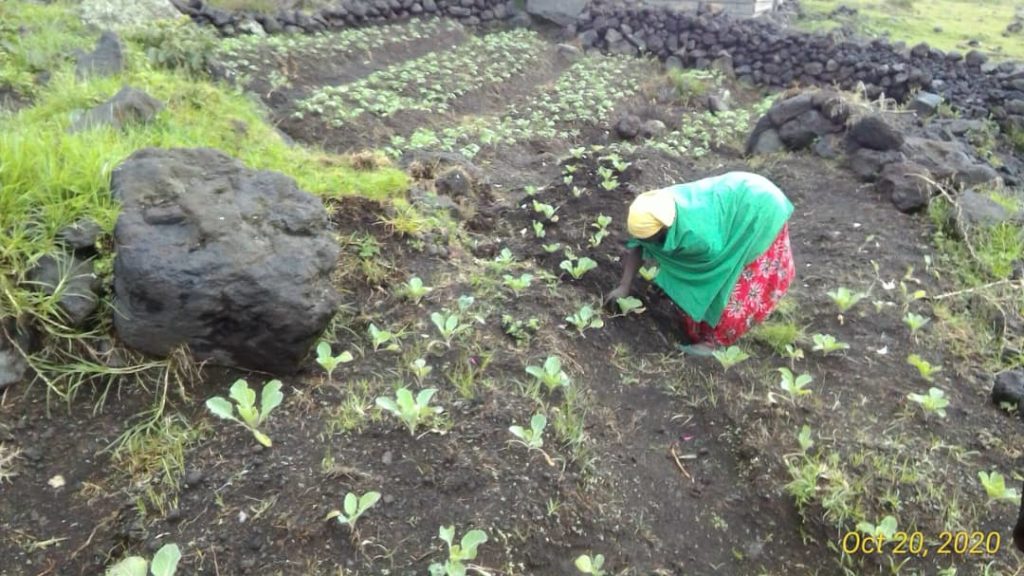
Mory’s Demonstration Garden 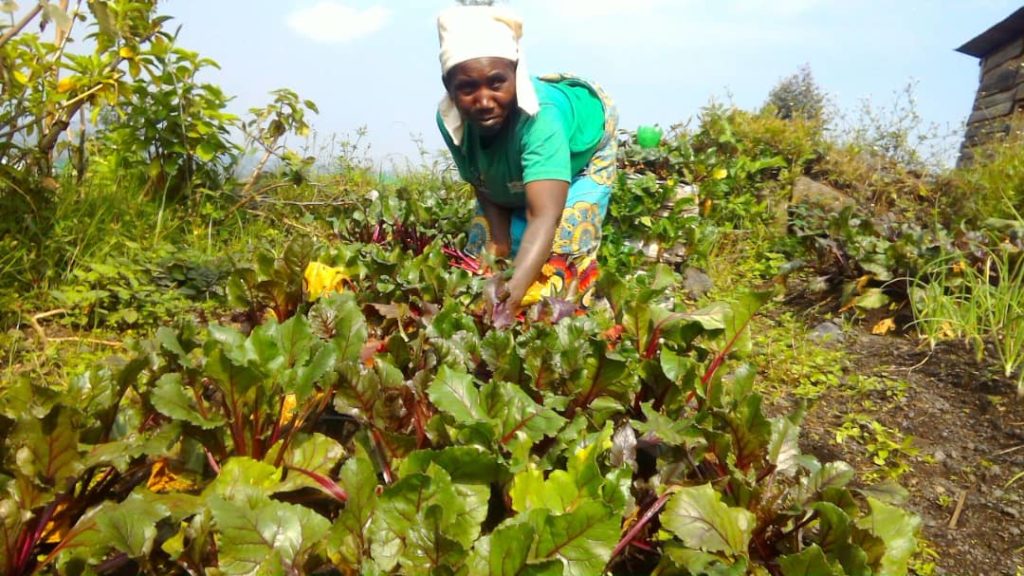
Mory’s Bed of Beets
On average, DIG’s Batwa graduates are growing six or more types of vegetables in their small farms, which is a big change since many weren’t growing anything at all before the program.
In addition to the health benefits of eating nutritious produce, a diverse farm means the Batwa can better withstand weather disruptions, and pest and disease damage, making them more resilient farmers overall. It also opens up new market opportunities for improved livelihoods.
Many DIG graduated have started small businesses with the income generated from their farms. They include:
- Vegetable Sales
- Sheep, Pig, and Rabbit Rearing and
- Basket Weaving
For the Batwa, gardens are an invaluable starting point. In most cases, available land is very limited, so that growing a reliable surplus for income is challenging,” says Sarah Koch, DIG’s Executive Director. “The gardens go a long way towards solving household food insecurity while diversifying diets, and they unlock a mindset for creative growth. It’s the community collaborations that I find most exciting.”
Time and again, DIG graduates are teaching their neighbors, thus elevating the whole community. As a group, they are having a big impact on the local food system.
